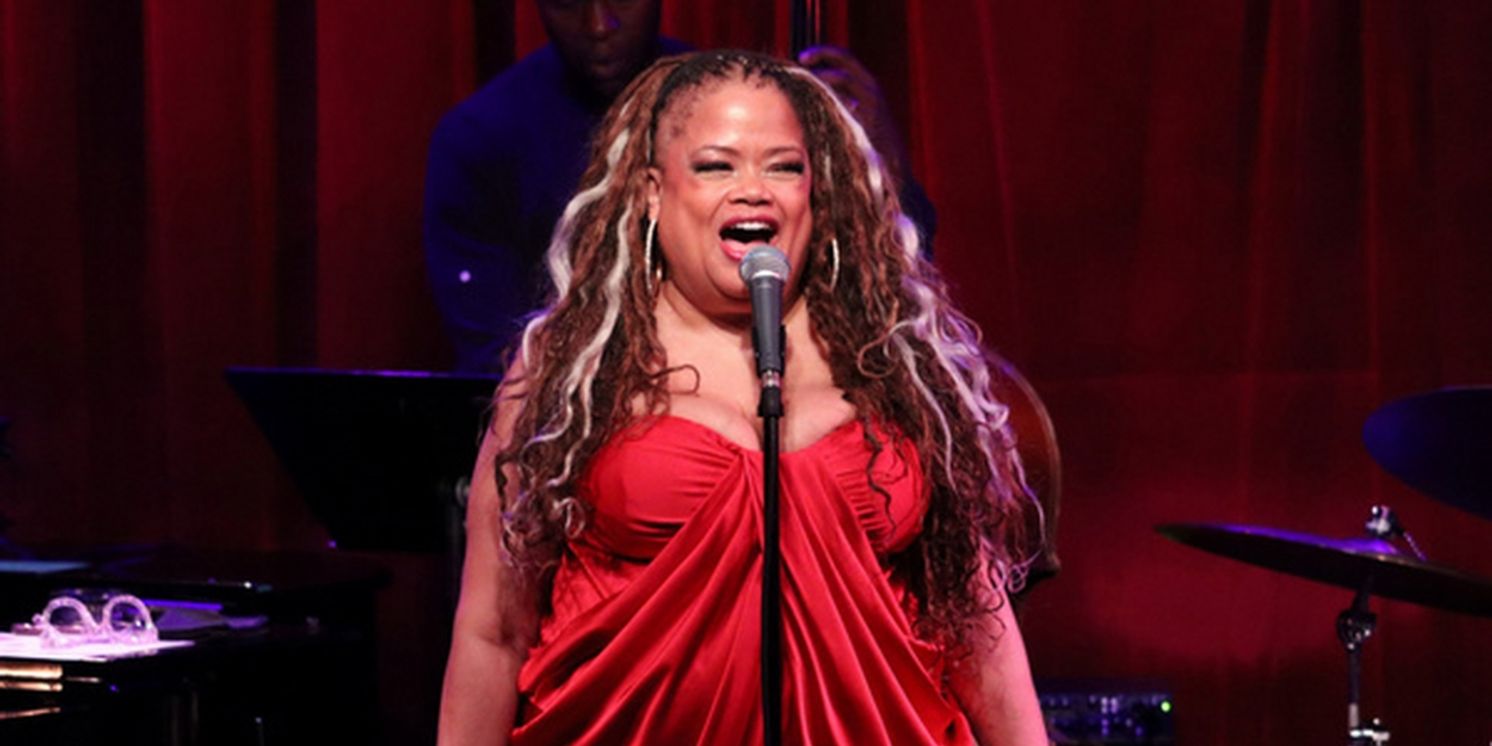Review: Natalie Douglas's Passion Infects During Her JUNETEENTH JUBILEE at Birdland Jazz Club
The performer's fiery personality brought the audience to tears and later to their feet as they sang and clapped along.

Nothing you could say about Natalie Douglas would sound superlative or over the top, for those who have heard her remarkable voice. At the same time, she warms the room, making it feel as if there aren’t a hundred or so people waiting to hear her sing. To have had a corner seat for the show, I had the perfect window to see members of the audience wiping tears away from their eyes after almost every powerful iteration of her astounding repertoire, from the very first lines of “I Wish I Knew How it Would Feel to be Free” by Dr. Billy Taylor. For this particular show, she brought in an enormous array of influences she often referred to as examples of “black excellence,” and it’s easy to place Douglas among the very best to have sung, including her often-mentioned idol, Nina Simone, the parallels of whose personal journey underpinned much of the story of this show. In combining all of these influences, Douglas reached throughout a vast array of material to characterize Juneteenth as a celebration of togetherness, faith, and perseverance for an ongoing fight.
The talented singer, Douglas, dubbed her show a 60’s Juneteenth theme, because “that was the last time [Juneteenth] was really heard of before it [recently] became a national holiday.” Still, the holiday was celebrated with gusto in Texas, where Douglas described it as strongly a church holiday, strengthening the community with songs of the spirit. In much the same way as you could imagine one such church celebration involving singing and dancing of all who gathered, Douglas’s infectious spirit lured many to sing and clap along to her, even before she beckoned them forth to do so. One such example of an “earworm” that Douglas tied between the many events of rights and faith was “Down at Stonewall” where the singer/songwriter spins the tale of meeting Jesus at Stonewall, where “he didn’t seem the least upset” about love being love. Similar to those times, Douglas brought the show back to real and ongoing events that still re-inspire her and had many truisms to say, catching a clap from the audience, between her many jokes. If the weight of the history of this movement hadn’t weighed so heavily, she may have focused more on the laughter she sparked up like embers between every song, and leaned into her comedic quality, but other lines brought the message back to reality, such as “if only America loved black people like they love black culture.”
One such example “of a modern moment connecting to an old song” was also one of the most brilliant performances by Douglas on the evening. It was that of “The Death of Emmet Till” by Bob Dylan. Douglas’s incredible range and fiery passion like the waves of her hair singed the cage around any heart, as she sang the line, “this boy’s fateful tragedy you should all remember well.” As is often the case with seeing a performer as talented as Douglas perform, it’s almost impossible to select one song from the next as better than another. From the powerful message of “Why?” by Gene Taylor to how the same event, MLK Jr's death, inspired “Blackbird” by Sir Paul McCartney; with each moment the audience could feel the very real heat of history in the stories Douglas shared of how these innumerous events had inspired people around the world to use their platform to sing of freedom and faith. When she mentioned that she “used to do this for the cats and the stuffed animals” it let the tension loosen just a bit, once again revealing the warmth everyone who knows Douglas can expect. Yet that same warmth clearly heats up for songs with such a deep emotional connection, such as “Four Women” and “Mississippi Goddam,” each by Dr. Nina Simone, who eventually left the United States because it “had broken her heart one too many times.”
From stuffed animals to bringing tears to the eyes of a packed house, Douglas was quick to point out she was aided in her journey by many. She pointed out members of the staff, the owner of the venue, the man on the lights. None were more key than her talented musicians, which included the sheer delight of Jakubu Griffin on drums, the talented Jonathan Michel on bass, stalwart Brian Nash on keys, and top-class music director, Mark Hartman at the piano. Set to release a new CD soon, Douglas’s voice is pure and vibrant, reaching across pitch and emotion with the ease of a feather on the wind, even while carrying the heaviest of messages.
Find other shows to see on the Birdland website HERE.
THIS is the Natalie Douglas website.
Photo by Kevin Alvey.
Reader Reviews
Videos

